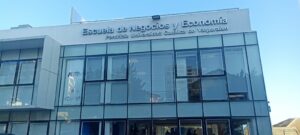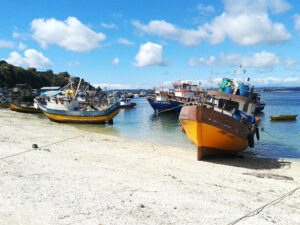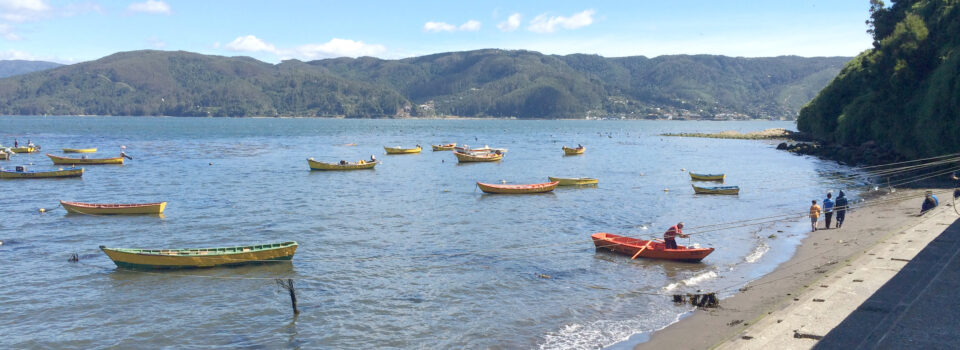IFOP researcher Pedro Romero Maltrana presents “Adaptive capacity of artisanal fishermen in the face of climate change through productive diversification processes”.
December 19th, 2024 On December 12 and 13, the School of Business and Economics of the Pontifical Catholic University of Valparaíso hosted the XXVI Annual Congress of Agrarian Economics, organized by the Association of Agrarian Economists (EAE). This prestigious event annually brings together leading specialists in environmental and agrarian economics from Chile.
On December 12 and 13, the School of Business and Economics of the Pontifical Catholic University of Valparaíso hosted the XXVI Annual Congress of Agrarian Economics, organized by the Association of Agrarian Economists (EAE). This prestigious event annually brings together leading specialists in environmental and agrarian economics from Chile.
 In this edition, the researcher from the Institute for Fisheries Development (IFOP), Pedro Romero Maltrana, presented his work entitled “Adaptive capacity of artisanal fishermen in the face of climate change through productive diversification processes”. His research addresses the impact of productive diversification as a strategy to mitigate the adverse effects of climate change in coastal communities, contributing to the sustainability of the livelihoods of artisanal fishermen.
In this edition, the researcher from the Institute for Fisheries Development (IFOP), Pedro Romero Maltrana, presented his work entitled “Adaptive capacity of artisanal fishermen in the face of climate change through productive diversification processes”. His research addresses the impact of productive diversification as a strategy to mitigate the adverse effects of climate change in coastal communities, contributing to the sustainability of the livelihoods of artisanal fishermen.
The study conceptualizes sustainable livelihoods as those that manage to maintain the well-being of communities, reduce their vulnerability to external factors and avoid the overexploitation of natural resources. Productive diversification represents a crucial tool to reduce the vulnerability of small-scale fishers. The proposed strategies include the exploitation of new fishery resources and the adoption of non-fishing-related activities, such as the development of local enterprises or migration to alternative economic sectors, adapting to the skills and opportunities available in each community.
 Through the use of panel data econometric models with fixed effects and two-stage instruments, the research analyzed data from the period 1998-2020 to assess how exogenous shocks, such as climate variations and macroeconomic fluctuations, influence fishermen’s diversification decisions. The results indicate that fishery diversification and related economic activities contribute to improving community income, mitigating the negative impacts of climate change. However, the study also highlights an inverse relationship between fisheries diversification and diversification into non-fisheries economic activities.
Through the use of panel data econometric models with fixed effects and two-stage instruments, the research analyzed data from the period 1998-2020 to assess how exogenous shocks, such as climate variations and macroeconomic fluctuations, influence fishermen’s diversification decisions. The results indicate that fishery diversification and related economic activities contribute to improving community income, mitigating the negative impacts of climate change. However, the study also highlights an inverse relationship between fisheries diversification and diversification into non-fisheries economic activities.
The congress not only allowed IFOP findings to be shared with researchers and academics from across the country, but also served as a valuable platform to strengthen ties around productive sustainability and natural resource management.
Press related links:
